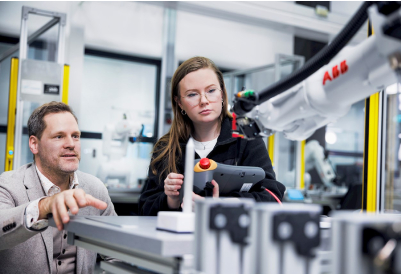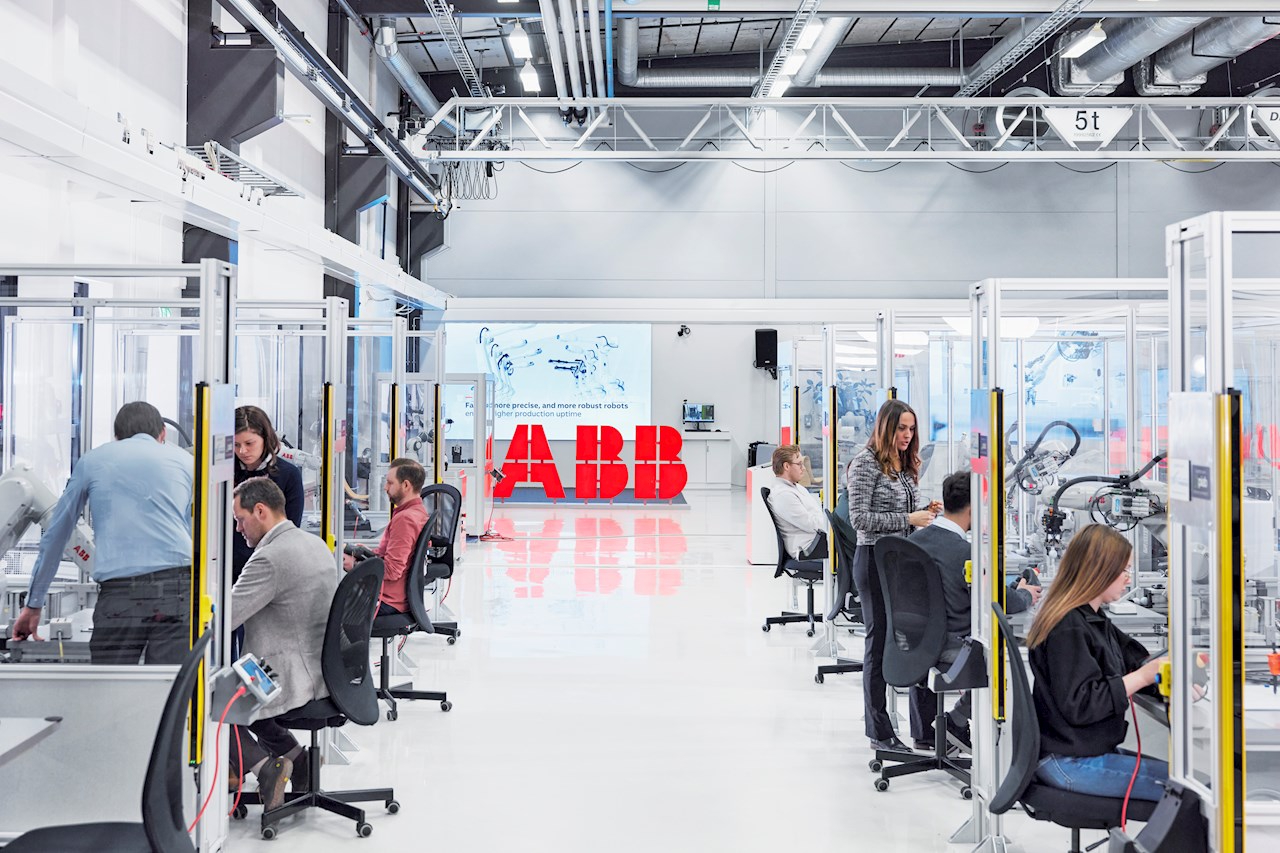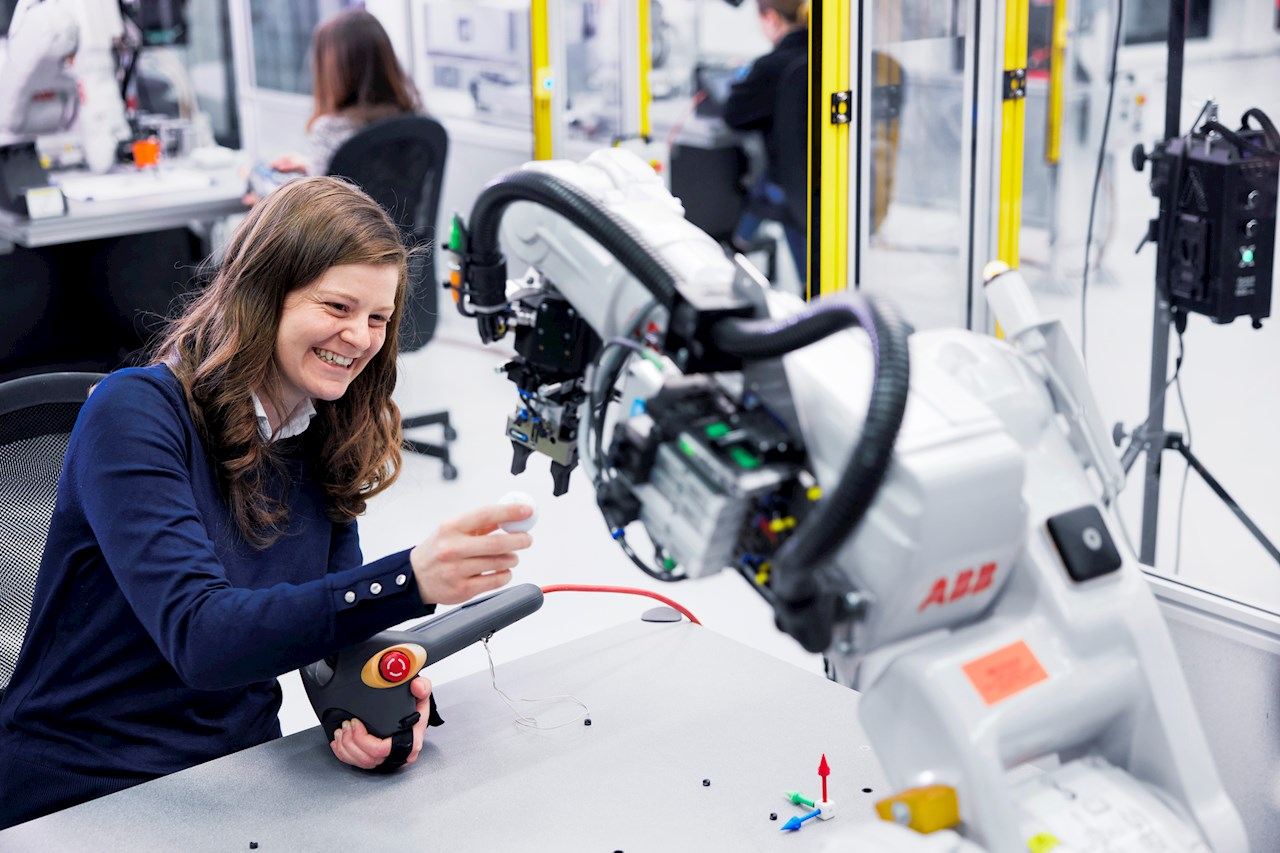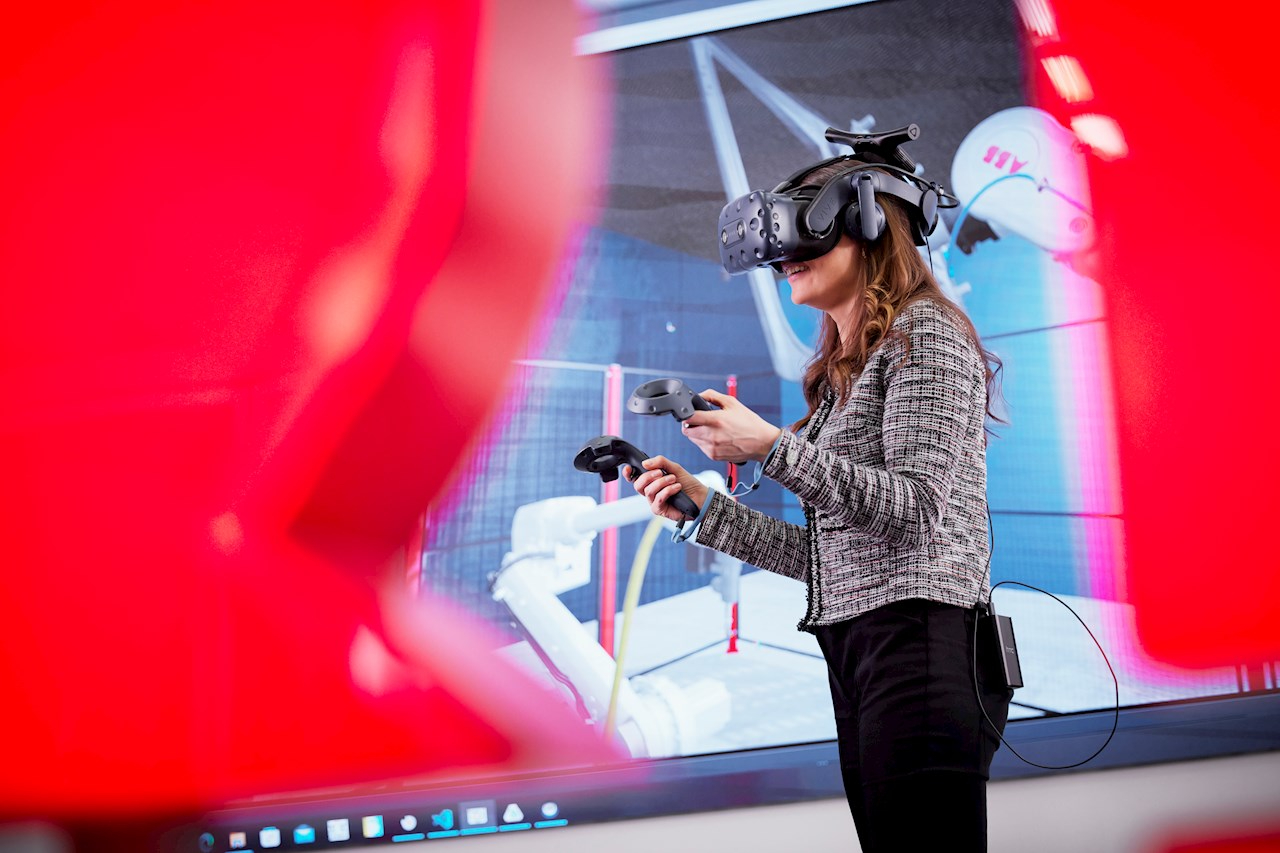ABB Survey Reveals Re-Industrialization at Risk from Global “Education Gap” In Automation

September 22, 2022
- •80% of education professionals say robots and automation will shape the future of employment over the next ten years.
- •Yet only one in four education establishments use robots in teaching programs despite planned investment in robotics and automation by 70% of US and European businesses over the next three years due to supply chain shifts*
- •ABB’s global education program of over 100 universities training over 30,000 students annually expands with opening of new Robotics & Automation training facilities.
A global ABB survey has revealed a growing trend in US and European businesses towards re-shoring or nearshoring operations to build resilience in the face of global challenges – but at the same time, a significant education gap in the skills necessary for these strategies to succeed.
“The world is constantly evolving – businesses are shifting existing structures and adopting new technologies to future-proof their operations for a variety of challenges and uncertainties, with robotic automation playing a key role,” said Sami Atiya, President of ABB’s Robotics & Discrete Automation Business. “We need significant investment in continuous education to prepare our existing and future workforce to thrive in an age of robotics and automation, important not only to prepare for the widespread shifts we are seeing, but to create prosperous societies going forward.”

ABB’s global education program of over 100 universities training over 30,000 students annually expands with opening of new Robotics & Automation training facilities
ABB’s 2022 survey of US and European business leaders revealed that 74 percent of European and 70 percent of U.S. businesses are planning to re- or nearshore operations to build their supply chain resilience in response to labor shortages, the need for a more sustainable global footprint and global uncertainty.
The majority of these businesses view automation as the enabler of these shifts, with 75 percent of European and 62 percent of US businesses surveyed planning to invest in robotics and automation in the next three years to facilitate this shift in operations.

Despite this appetite for automation, ABB’s 2022 global education survey found a significant gap in the education and training needed to ensure the skills necessary for work in the increasingly connected and automated workplaces of the future. Of the global education professionals surveyed, 80 percent believe robotics and automation will shape the future of employment in the next ten years, while only one in four education institutions currently use robots as part of their teaching programs.
ABB’s existing educational offering consists of software packages, including ABB’s Wizard Easy programming, RobotStudio® and RobotStudio® AR Viewer App
To help bridge the skills gap, ABB has bolstered its global Robotics and Automation education program with new training centers, including its EUR 100m global innovation and training campus in Austria. The new site, along with other new regional training centres in the UK, Berlin and Brazil expands ABB’s training facilities to over 40 sites globally, educating more than 30,000 students from schools, colleges, and universities, as well as apprentices and workers each year.
The sites add to ABB’s existing educational offering, which consists of software packages, including ABB’s Wizard Easy programming, RobotStudio® and RobotStudio® AR Viewer App, as well as hardware in the form of collaborative robot cells and application packages. Through more than 100 global partnerships with schools and universities, ABB generates curriculum materials with education providers to help educate future generations and prepare them the jobs of tomorrow.

“Change needs to happen now,” added Atiya. “As companies turn to robotic automation to offset labor shortages, improve efficiency, and increase resilience, workers need the skillsets to use automation to perform their jobs and augment their own roles. Businesses need to join forces, cooperating with education institutions and Governments to ensure that society is prepared for jobs of the future. Only through this can we fully utilize flexible automation and unlock value from the ongoing re-industrialization.”
To help bridge the skills gap, ABB has 40 Robotics and Automation training sites globally, educating more than 30,000 students, apprentices and workers
ABB’s survey highlights the critical need to promote the teaching of robotics and automation skills. For more information, including ABB’s offering for education, examples of educational projects involving ABB and its robots and software, and a white paper explaining how teaching automation can help shape tomorrow’s workforce, visit the ABB education portal page by clicking here
*ABB Supply Chain survey, 2022
This release combines findings from ABB’s Supply Chain and Education survey, both conducted in 2022.




